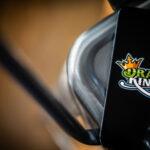Standard & Poor’s Ratings Services has lowered its counterparty credit rating on Bermuda-based IPC Holdings Ltd. to ‘BBB-‘ from ‘BBB’ and removed it from CreditWatch, where it was placed on June 16, 2009, with negative implications. S&P then withdrew its ratings on all of the members of the IPC group at the company’s request, including the ‘A-‘ ratings on IPCRe Ltd. and IPCRe Europe Ltd. S&P explained: “Following the Sept. 4, 2009, approval by IPC Holdings Ltd.’s shareholders of the acquisition by Validus Holdings Ltd., we aligned the counterparty credit rating on IPC Holdings Ltd. with that on Validus Holdings Ltd. (BBB-/Positive/–). The IPC transaction will significantly enhance Validus’ competitive position by significantly expanding its market presence in the global property catastrophe marketplace. In addition, the combined company’s pro forma capital base will be significantly higher (about $4.0 billion as of June 30, 2009), which should provide the group with a greater capacity to participate in a variety of programs and market opportunities. We expect that the combined companies’ capital adequacy will remain strong after the acquisition and that financial leverage will remain moderate.” As offsetting, S&P expressed concern “about Validus’ aggressive appetite for acquisitions, with IPC’s deal constituting the second major acquisition by Validus over the last two years. In July 2007, Validus acquired Lloyd’s syndicate Talbot Underwriting Holdings in a transaction that effectively doubled Validus’ premium writings. Validus’ track record of a successful integration of Talbot to date partially mitigates these concerns. In addition, with property catastrophe risks constituting one of Validus’ core lines of business, the group is familiar with IPC’s property catastrophe book of business, which we expect to be quickly integrated into Validus’ proprietary VCAPS underwriting system. In the first half of 2009, IPC’s gross premiums written increased 20 percent to $362 million because of new business written along with rate increases on existing property catastrophe reinsurance contracts. Despite the increase in premiums, IPC’s operating performance declined, though it is still strong.”
A.M. Best Co. has upgraded the financial strength rating to ‘B++’ (Good) from ‘B+’ (Good) and issuer credit rating to “bbb” from “bbb-“of Polskie Towarzystwo Reasekuracji S.A. (Polish Re), and has maintained a stable outlook for all of the ratings. “The rating action reflects the support and financial flexibility provided to Polish Re by its new owner, Fairfax Financial Holding Limited,” said Best. “In addition, Polish Re is expected to benefit from Fairfax’s know-how in terms of strategic, financial and capital management.” Best added that it had also factored in its “expectation of improving risk-adjusted capitalisation and overall earnings in 2009 and onwards. An offsetting factor is the company’s business profile, which is becoming more restricted and concentrated.” The report noted that “Polish Re’s overall earnings deteriorated very significantly in 2008 with a loss before tax of PLN 30.3 million [$10.73 million] (PLN 7.8 million [$2.76 million] in 2007). The company’s technical account was negatively impacted by high claims in the property and motor portfolios (translating into a combined ratio of 105.5 percent), while high foreign exchange losses resulted in overall investment losses of PLN 12 million [$4.25 million]. This lead to a 24 percent decrease in capital and surplus levels, seriously affecting Polish Re’s risk-adjusted capitalisation at year-end 2008.” However, Best expects capital levels to improve, following a PLN 17 million [$6 million] capital injection by Fairfax in the first half of 2009 and good anticipated earnings.”
A.M. Best Co. has revised the outlook to positive from stable and affirmed the financial strength rating of’ B+’ (Good) and the issuer credit rating of “bbb-” of Societe Tunisienne de Reassurance (Tunis Re). Best said the positive outlook “reflects Tunis Re’s strong and improving risk-adjusted capitalisation, which benefits from a planned capital injection of TND 10 million [$7.5 million] in 2010 and consistently good technical performance. Tunis Re also has a stable and solid domestic business profile, which is partially offset by its dependence on a small number of cedants in Tunisia. Best added that it “believes that Tunis Re maintains a very good stable domestic business profile as a national reinsurer created by the State. As a result, Tunis Re has a market share of approximately 25 percent in the domestic reinsurance market, which is sustainable in the medium term. However, Tunis Re’s limited capacity continues to hinder its development in the international market.” Best also said it “believes that Tunis Re’s current and prospective risk-adjusted capitalisation is likely to remain strong through 2009-2010 and is further reinforced by the planned capital injection of TND 10 million ($7.5 million). Whilst retaining 50 percent of the overall portfolio, Tunis Re remains potentially exposed to a natural catastrophe such as an earthquake or a drought, which would have an adverse impact on its risk-adjusted capitalisation.” Best also expects Tunis Re’s overall earnings “to remain consistently stable and positively impacted by likely stable investment returns, while the investment portfolio gradually increases exposure to shareholdings in 2010 and 2011 to take advantage of the anticipated markets recovery, translating into an expected return on equity in the range of 10 percent over the next three years.” Best believes the company’s combined ratio is likely to deteriorate to around 93 percent-94 percent in 2009 (92.4 percent in 2008) mainly due to higher brokerage fees and increased domestic claims severity. Tunis Re’s expense ratio is expected to increase to around 37 percent-38 percent (36.6 percent in 2008) due to higher overhead costs from increased expenditures on new office buildings.”
Was this article valuable?
Here are more articles you may enjoy.

 EVs Head for Junkyard as Mechanic Shortage Inflates Repair Costs
EVs Head for Junkyard as Mechanic Shortage Inflates Repair Costs  Beyond the Claim: How Social Canvassing is Transforming Insurance Fraud Detection
Beyond the Claim: How Social Canvassing is Transforming Insurance Fraud Detection  DraftKings Sued Over ‘Risk-Free’ Bets That Were Anything But
DraftKings Sued Over ‘Risk-Free’ Bets That Were Anything But  Viewpoint: The Impact of Behavioral Health on Workers’ Comp
Viewpoint: The Impact of Behavioral Health on Workers’ Comp 